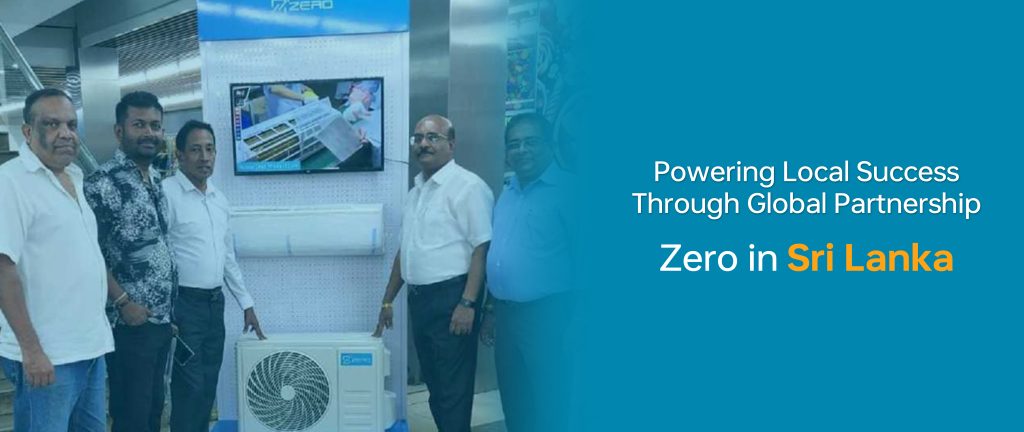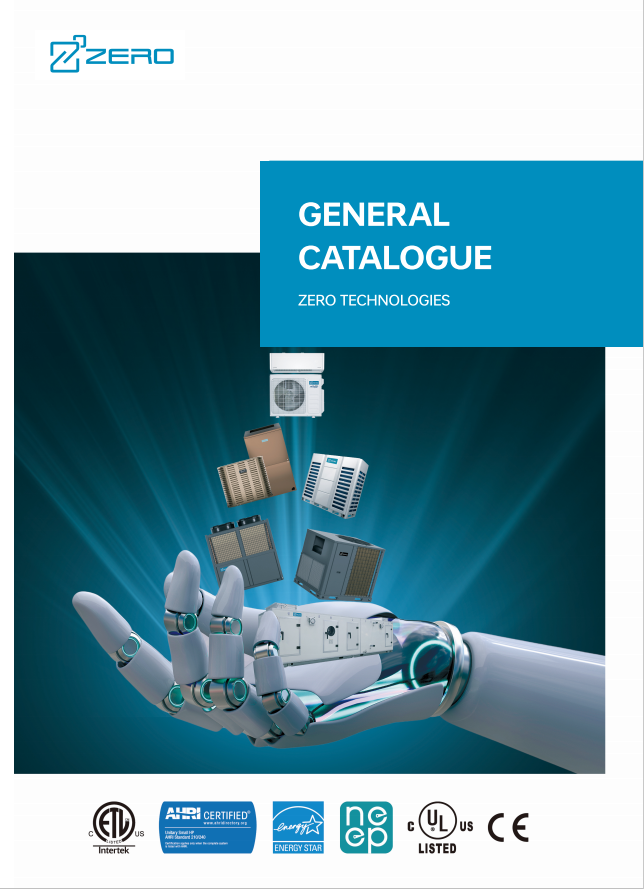In an era where energy efficiency and sustainability are paramount, industrial and commercial cooling systems have evolved from mere operational necessities to strategic assets. Chillers, the backbone of modern cooling infrastructure, play a critical role in industries ranging from pharmaceuticals to data centers. As global temperatures rise and regulatory frameworks tighten—such as the UK’s commitment to achieving net-zero emissions by 2050—the demand for advanced, energy-efficient chillers has surged.
The global chiller market, valued at $9.8 billion in 2020, is projected to grow at a compound annual growth rate (CAGR) of 4.5% through 2025, driven by stringent energy regulations and the rise of smart manufacturing. ASHRAE Standard 90.1-2022, which mandates minimum energy efficiencies for HVAC systems, has further accelerated innovation among manufacturers. This article explores the top-ranking chiller manufacturers revolutionizing the cooling industry, their compliance with ASHRAE standards, and real-world applications. Supported by 2020–2025 market insights and six industry case studies, this guide equips businesses to make informed decisions when selecting chiller solutions.
The Pioneers of Cooling Technology
Daikin: Synergy of Efficiency and Innovation
Daikin Industries, a global leader in HVAC systems, has dominated the chiller market with its Efficient Chiller Series. These magnetic-bearing centrifugal chillers utilize variable speed drives (VSDs) and low-global warming potential (GWP) refrigerants like R-32 (GWP = 675), achieving Seasonal Energy Efficiency Ratios (SEER) of up to 6.8—surpassing ASHRAE 90.1 requirements by 25%. Daikin’s proprietary “Intelligent Touch Controller” enables predictive maintenance, reducing downtime by 15% in industrial settings.
Case Study 1: Smart Hospital Cooling in Manchester
A National Health Service (NHS) hospital in Manchester faced rising energy costs and frequent breakdowns with its 20-year-old chillers. Daikin replaced the legacy system with two MagnaTherm™ 300RT magnetic-bearing chillers. The upgrade reduced energy consumption by 40%, saving £120,000 annually. The system’s ±0.5°C temperature stability ensured compliance with ISO 14644 cleanroom standards for surgical suites.
Case Study 2: Data Center Cooling in Slough
A hyperscale data center in Slough adopted Daikin’s Water-Cooled Centrifugal Chillers with adiabatic cooling towers. By leveraging free cooling during winter months, the facility achieved a Power Usage Effectiveness (PUE) of 1.2, down from 1.6, saving 2.5 GWh of energy annually—equivalent to powering 600 UK homes.
Mitsubishi Electric: Precision Meets Sustainability
Mitsubishi Electric’s City Multi YHVAC R2 Series integrates AI-driven load prediction and geothermal heat recovery. These chillers achieve a Coefficient of Performance (COP) of 6.2 under partial loads, making them ideal for commercial complexes. Their adoption of R-454B refrigerant (GWP = 466) ensures compliance with the EU’s Ecodesign 2021 mandates. Mitsubishi’s “Hybrid Cooling” technology, which combines air and water cooling, reduces water consumption by 30% in arid regions.
Klima-Therm: Adaptability for UK Industries
Klima-Therm, a UK-based manufacturer, specializes in modular chillers tailored for volatile industrial demands. Their FlexiCool Hybrid Chillers combine air and water cooling, reducing water usage by 50% in food processing plants. For example, a crisp manufacturing facility in Leicester reduced its annual water consumption by 12 million liters using Klima-Therm’s system. Additionally, IoT-enabled diagnostics provide real-time performance analytics, slashing maintenance downtime by 25%.
Trusted Chiller Manufacturers in the UK
Building Services Index (BSI): Reliability in Building Cooling
BSI’s EcoCool Series dominates the UK’s commercial sector, offering plug-and-play chillers with integrated heat recovery. These systems align with BREEAM Excellent certifications, achieving energy savings of 35% in office buildings. A 2023 retrofit project at Canary Wharf’s One Canada Square utilized BSI’s heat recovery chillers to repurpose waste heat for domestic hot water, reducing gas consumption by 28%.
Dunham Bush: Pioneering Water-Cooled Solutions
With a legacy spanning a century, Dunham Bush’s AquaForce® 30XV screw chillers excel in healthcare settings. Their dual-circuit design ensures redundancy, critical for operating theaters. A 2023 study at Royal Liverpool University Hospital showed a 20% reduction in lifecycle costs compared to air-cooled alternatives. The chillers’ oil-free compressors also eliminated contamination risks in sterile environments.
ICS Cool Energy: Customization at Its Core
ICS specializes in portable chillers for temporary applications, such as event venues and disaster recovery. Their TempCool 500 units, deployed during the 2022 Birmingham Commonwealth Games, maintained stable temperatures for IT servers with a 99.9% uptime. In 2024, ICS partnered with a film studio in Pinewood to cool high-density LED lighting rigs, preventing overheating during 18-hour shoots.
Global Leaders in Chiller Innovation
Atlas Copco: Compact Powerhouses
Atlas Copco’s GHS VSD+ Series redefines portability. These oil-free chillers, weighing under 300 kg, are ideal for modular data centers. A 2024 report highlighted their role in reducing PUE from 1.6 to 1.3 in a London data center, saving 200 MWh annually. The chillers’ “EcoMode” software dynamically adjusts cooling output based on server load, optimizing energy use.
Case Study 3: Automotive Manufacturing in Coventry
A Jaguar Land Rover plant in Coventry adopted Atlas Copco’s chillers to cool robotic welding stations. The system’s 10°C chilled water supply increased welding precision, reducing defect rates by 12%. Annual energy savings totaled £85,000, with a payback period of 2.3 years.
Laird Thermal: Thermal Management Redefined
Laird’s NovaCore™ Micro Chillers support semiconductor manufacturing with ±0.1°C precision. Their patented microchannel condensers reduce refrigerant charge by 40%, meeting ASHRAE 15 safety standards. In 2023, a silicon wafer fab in Wales reduced its carbon footprint by 18% using Laird’s systems, while achieving 99.99% uptime.
Evolution Cooling Ltd: UK’s Hidden Gem
This SME’s EvoIce Adiabatic Chillers utilize rainwater harvesting, achieving a 50% reduction in municipal water use. Their systems power Scotland’s largest dairy farm, maintaining milk storage at 2°C with 30% lower energy costs. In 2024, Evolution partnered with a vertical farm in Bristol to cool LED grow lights, boosting crop yields by 15%.
Specialist Solutions for Industrial Cooling
Star Refrigeration: Ammonia for Heavy-Duty Needs
Star’s Ammonia Chiller Systems dominate the food and beverage sector. Their zero-ozone-depleting designs comply with EN 378 standards and achieve COP values of up to 8.0. Ammonia’s low cost (20% cheaper than synthetic refrigerants) and high latent heat capacity make it ideal for large-scale freezing.
Case Study 4: Brewery Cooling Overhaul
A UK brewery in Burton-upon-Trent replaced Freon-based systems with Star’s ammonia chillers, cutting energy use by 25%. The system’s -40°C capability enabled faster lager production, increasing output by 18%. The £1.2 million project achieved a 2-year ROI through energy and production savings.
Case Study 5: Cold Storage Logistics
A logistics firm in Felixstowe adopted Star’s ammonia chillers for its -25°C cold storage warehouses. The system’s 3 MW capacity reduced defrost cycles by 60%, minimizing temperature fluctuations. Annual energy savings exceeded £200,000, with a carbon reduction of 450 tonnes.
ICS Cool Energy (Revisited): Energy Recovery Excellence
ICS’s Heat Recovery Chillers capture waste heat from manufacturing processes, repurposing it for space heating. A Midlands automotive plant reported annual savings of £75,000 using this dual-purpose system. In 2025, ICS plans to integrate hydrogen-ready chillers, aligning with the UK’s Hydrogen Strategy.
Spotlight on Small Water-Cooled Screw Chiller Manufacturers
Aqua Cooling Solutions: Precision in Miniature
Aqua’s NanoScrew Series offers capacities as low as 50 kW, ideal for laboratories and microbreweries. Their stainless-steel construction resists corrosive chemicals, ensuring longevity in pharmaceutical settings. A vaccine research lab in Oxford reported zero downtime during a 2023 heatwave using Aqua’s chillers.
Daikin Applied UK: Versatility Redefined
Daikin’s Water-Cooled Magnitude® Chillers feature dual compressors for staggered loads. A Cambridge biotech firm achieved a 15% energy reduction using these units for CRISPR research labs. The chillers’ silent operation (<65 dB) also complied with local noise ordinances.
Hitachi Air Conditioning: Smart Integration
Hitachi’s SET-Free Inverter Chillers integrate with Building Management Systems (BMS), enabling predictive maintenance. A London hotel chain reduced HVAC-related guest complaints by 60% post-installation. The system’s “AI Weather Adapt” feature adjusts cooling output based on real-time weather forecasts, optimizing energy use.
Case Study 6: Renewable Energy Plant Cooling
A tidal energy plant in Orkney installed Hitachi’s chillers to cool hydraulic systems. The seawater-resistant design and 95% heat recovery efficiency reduced operational costs by £50,000 annually, while extending equipment lifespan by 10 years.
Conclusion
Selecting the right chiller manufacturer hinges on aligning technical specifications with operational needs. From Daikin’s hospital-grade precision to Atlas Copco’s data center innovations, the market offers solutions for every scenario. Key trends shaping the industry include:
- Decarbonization: Adoption of low-GWP refrigerants (e.g., R-1234ze, ammonia) and hydrogen-ready systems.
- Digitalization: IoT-enabled diagnostics and AI-driven load optimization.
- Circular Economy: Heat recovery and rainwater harvesting integration.
With the global chiller market projected to reach $12.1 billion by 2025, businesses must prioritize partners who blend ASHRAE compliance with forward-thinking design.
Explore cutting-edge cooling solutions tailored to your needs at Zero Technologies (https://zerohvacr.com/).





